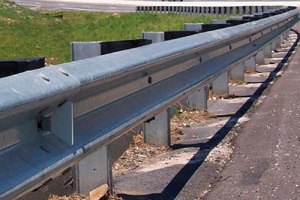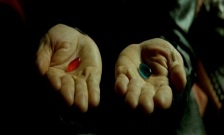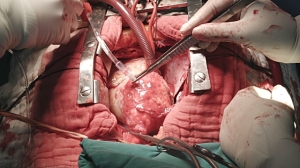Should we actively avoid suffering?
(Question 6 of 8 in the Goodness of God series)
No matter how much we might understand, intellectually, that suffering in our lives is necessary and good, it’s our instinct to avoid it. We have discussed the ways in which God actively uses suffering to give us good things — refining us, so that we will come forth as gold (Job 23:10). Instinctively, we know that a diet of all donuts and candy is a bad thing. It makes you grow, but in all the wrong ways. Vegetables and lean protein don’t taste as good as burgers, fries and chocolate shakes, but one dietary pattern leads (statistically) to a long, healthy life and the other leads to far greater pain and misery down the road than saying “no” to your favorite comfort foods will ever cause you today. It’s at least in part about delayed gratification. Will you endure some pain now for much glory later? Or will you avoid pain now at all cost today, even at the tremendous risk of unbearable pain in the future?
So if pain and suffering are so valuable and necessary, why do we run from them?
Some might think the answer to the question of pain-avoidance is a little silly … or at least that it’s patently obvious. Nobody likes pain, so of course everybody should want as little of it as possible! Right? Most of us, when life is good and we aren’t experiencing suffering, fear it and work hard to insulate our lives from even the possibility of it. And when we’re in the middle of painful circumstances, we beg God to get us out of it as fast as He can and/or we resent Him for putting us through those circumstances in the first place. So let’s start there…
Isn’t it obvious we should avoid some kinds of pain?
In an earlier post, I talked about the pain of getting too close to a fire. Doesn’t this demonstrate that exactly the right reaction to pain is a) to avoid it (by not getting too close to fire) and b) to make it go away as fast as possible when we feel it (by putting the fire out or retreating away when we get too close)? I mean, no sane person intentionally sticks their hand in the fire because “pain is good” … right?
 True, but I think this reasoning confuses two important concepts: the pain caused by fire and the damage caused by fire. The fire inflicts pain if you get too close to it specifically to warn you that you are too close … to turn you away, so that the damage that would inevitably follow can be avoided. Pain is an insulator against damage — a sentry standing guard outside its door. In knowing that pain will result, we keep our hands far enough away. Or, in feeling pain, we retract our hands from the fire so it doesn’t in fact harm us. In either case, we’re not really avoiding pain, we’re avoiding getting burned. Or, at least that’s what should be happening. Either way, pain is avoided or subsides, but that’s only because the risk of burning is being avoided or has subsided as well. The pain is what was at work to help you avoid being burned, damaged, hurt by the fire. Avoiding the pain could be good, in that you pull your hand away from the fire, but avoiding the pain could also mean the opposite … becoming calloused and unaffected by the pain so that you end up plunging headlong into the damage the fire can do to you, because the pain wasn’t there to stop you. In fact, the pain is your friend; it’s goal is to help you avoid the damage the fire itself can inflict upon you.
True, but I think this reasoning confuses two important concepts: the pain caused by fire and the damage caused by fire. The fire inflicts pain if you get too close to it specifically to warn you that you are too close … to turn you away, so that the damage that would inevitably follow can be avoided. Pain is an insulator against damage — a sentry standing guard outside its door. In knowing that pain will result, we keep our hands far enough away. Or, in feeling pain, we retract our hands from the fire so it doesn’t in fact harm us. In either case, we’re not really avoiding pain, we’re avoiding getting burned. Or, at least that’s what should be happening. Either way, pain is avoided or subsides, but that’s only because the risk of burning is being avoided or has subsided as well. The pain is what was at work to help you avoid being burned, damaged, hurt by the fire. Avoiding the pain could be good, in that you pull your hand away from the fire, but avoiding the pain could also mean the opposite … becoming calloused and unaffected by the pain so that you end up plunging headlong into the damage the fire can do to you, because the pain wasn’t there to stop you. In fact, the pain is your friend; it’s goal is to help you avoid the damage the fire itself can inflict upon you.
Another way to look at it is that there are degrees of pain. The pain of the heat as you get too close to the fire helps you avoid the far, far, far worse pain of 2nd and 3rd degree burns that would result if that pain wasn’t there to warn us away from the flames before they had a chance to really severely burn us.
Does that mean that we should seek pain out?
 No. When driving on a road on the edge of a cliff, you don’t swerve intentionally into the guardrails to see what will happen. You stay on the road, avoiding the “pain” of the guardrails. But if you get distracted or happen to get off course … if something goes wrong … and you come in contact with the guardrails, they keep you from going off the cliff. When you swerve back away from the guardrails to get yourself reoriented to the middle of the lane where you belong, your goal isn’t to avoid the guardrails per se, but to be on the road where you’re supposed to be in the first place. You’re not avoiding pain, you’re driving safely and responsibly. No sane person plows into the guardrails intentionally, or rides for miles scraping against them. But at the same time, nobody in their right mind wishes the guardrails weren’t there or curses the minor damage done to their car when encountering them … given that they have just prevented her from plummeting to her death.
No. When driving on a road on the edge of a cliff, you don’t swerve intentionally into the guardrails to see what will happen. You stay on the road, avoiding the “pain” of the guardrails. But if you get distracted or happen to get off course … if something goes wrong … and you come in contact with the guardrails, they keep you from going off the cliff. When you swerve back away from the guardrails to get yourself reoriented to the middle of the lane where you belong, your goal isn’t to avoid the guardrails per se, but to be on the road where you’re supposed to be in the first place. You’re not avoiding pain, you’re driving safely and responsibly. No sane person plows into the guardrails intentionally, or rides for miles scraping against them. But at the same time, nobody in their right mind wishes the guardrails weren’t there or curses the minor damage done to their car when encountering them … given that they have just prevented her from plummeting to her death.
What about other (bad!) kinds of suffering?
Maybe you think those aren’t particularly helpful examples, or that they don’t cover the kind of pain you’re experiencing. You might ask… What about the pain of a couple who desperately wants but can’t have children? What about the pain of someone who lost a child or parent or close friend, especially if it’s considered a premature loss? What about someone suffering from cancer at a young age? What about being displaced from your home by a war or a natural disaster, or the person who has experienced some kind of trauma and now lives with chronic, daily pain (physical or emotional)? We could go on and on and on.
These pains don’t seem like the heat of a fire warning us away or the scraping damage of the guardrail as it saves you from falling to your death. These seem more like the torture inflicted by some sick sadist or like being a ball of string for God’s cat. What about this kind of pain? Shouldn’t at least this kind of pain be avoided?
Two thoughts…
First, how do you know that these pains aren’t appropriately to be cataloged as heat-of-the-fire pains or guard rail pains? How do you know what God might be protecting you from, or how He does so in His infinite (as in, way better than yours!) wisdom?
Second, I would actually make the argument that this kind of pain is in fact the most valuable and the last thing we should seek to avoid. But this is where many of us place our energies — attempting to build defensive bunkers to protect ourselves against this kind of pain. We plan extensively, invest our resources endlessly, pray for safety continually, and worry obsessively … in the hopes that we can shield ourselves from suffering.
Why is that?
I would suggest a few reasons…
1) We have cultivated unhealthy perspectives
 It’s difficult to rightly value suffering as a means of God’s sanctifying work in us, if we do not first see clearly the seriousness of our sin and the gloriousness of heaven. Before we find ourselves in painful circumstances, we must prepare our hearts to stand up under them, if we’re going to rightly trust God’s goodness as He works in us.
It’s difficult to rightly value suffering as a means of God’s sanctifying work in us, if we do not first see clearly the seriousness of our sin and the gloriousness of heaven. Before we find ourselves in painful circumstances, we must prepare our hearts to stand up under them, if we’re going to rightly trust God’s goodness as He works in us.
Read more about gaining clarity of perspective.
2) We are enamored with quick fixes
 You are God’s masterpiece. And it takes a long time and a lot of work to create a masterpiece. If we view our lives like a hyper-quick, questionably nutritious meal, then we will never be what God made us to be. His work in us is far more like Thanksgiving dinner than leftover pot roast, and we would be wise to embrace (not avoid!) the long time and sometimes painful difficulty God is investing to make us like Jesus.
You are God’s masterpiece. And it takes a long time and a lot of work to create a masterpiece. If we view our lives like a hyper-quick, questionably nutritious meal, then we will never be what God made us to be. His work in us is far more like Thanksgiving dinner than leftover pot roast, and we would be wise to embrace (not avoid!) the long time and sometimes painful difficulty God is investing to make us like Jesus.
Read more about not expecting quick fixes.
3) We live in a dream world (and don’t want to wake up)
 Much of what we call “treasure” and “happiness” in this world are little more than trinkets we collect in a dream. Pain and suffering are God’s megaphone to wake us up from that dream into a world of abundant blessing (real treasure; heavenly treasure). But we have to choose to be roused from slumber into real life.
Much of what we call “treasure” and “happiness” in this world are little more than trinkets we collect in a dream. Pain and suffering are God’s megaphone to wake us up from that dream into a world of abundant blessing (real treasure; heavenly treasure). But we have to choose to be roused from slumber into real life.
Read more about God’s attempts to wake us up.
4) We are focused on earthly goals
 Imagine you’re the average Israelite slave building Pharaoh a pyramid a couple thousand years ago. Moses shows up, hacks off the king, and gets you and your family in trouble. Now you resent him, God, and the Egyptian government even more than you already did! Who knew that was possible?! But maybe it’s because you have your heart fixed on the wrong thing.
Imagine you’re the average Israelite slave building Pharaoh a pyramid a couple thousand years ago. Moses shows up, hacks off the king, and gets you and your family in trouble. Now you resent him, God, and the Egyptian government even more than you already did! Who knew that was possible?! But maybe it’s because you have your heart fixed on the wrong thing.
Read more about dreaming for yourself the way God dreams for you.
5) We don’t really trust God
 God is wise, and we aren’t. When life it’s hard, it’s easy to consider God to be callous or even incompetent, but just because we don’t understand what God is doing doesn’t mean that He isn’t working all things together for our good. The more we shift our focus from our circumstances to trusting the God who orchestrates them, the better we’ll navigate the storms of life.
God is wise, and we aren’t. When life it’s hard, it’s easy to consider God to be callous or even incompetent, but just because we don’t understand what God is doing doesn’t mean that He isn’t working all things together for our good. The more we shift our focus from our circumstances to trusting the God who orchestrates them, the better we’ll navigate the storms of life.
Read more about trusting God in the midst of painful circumstances.
6) We misunderstand what it means to follow Jesus
 Jesus did not call his followers to a life of pain-free comfort, but to picking up our cross every day, dying to self, and living only in Christ. That’s hard. It’s explicitly not pain free, any more than Jesus’ life was pain free. But our purpose on this earth is to be germinated into new eternal life, which unequivocally requires death.
Jesus did not call his followers to a life of pain-free comfort, but to picking up our cross every day, dying to self, and living only in Christ. That’s hard. It’s explicitly not pain free, any more than Jesus’ life was pain free. But our purpose on this earth is to be germinated into new eternal life, which unequivocally requires death.
Read more about dying to live.
Temporary suffering for permanent good
By the very nature of our extremely brief lives on this earth, whatever refining work God is doing in us … whatever pain is involved with dying with Christ that we might be raised to life … It is, by definition, temporary. It is, however, carefully designed to prepare us for the permanent reality of the Kingdom of Heaven. Our tendency to desire a world without suffering is grounded in the common intuition that there really should be (and in fact is) such a place. But because most of us have a relatively weak and distant view of heaven, we fail to view that future life as far more important than this one, and we fail to trust that God is always and perfectly doing in us what needs to be done to prepare us for it. As a result, we tend to desperately desire the best possible life today or next Tuesday, with dangerously little regard for the best possible life in eternity.
God’s actions are always, only and entirely good, but they are eternal in scope. What God is doing is always bigger and better and more important than the things we want Him to do. We think God isn’t thinking big enough for us, but in fact it is we who are thinking small. CS Lewis was right, we are far too easily pleased.
 What if you were an alien visiting from Jupiter and walked in on Sally in the middle of a root canal or Fred as he is undergoing open heart surgery? If these brief experiences were your only barometer for measuring their lives and you made the assumption that these events represented the totality of human life, then you would walk away from those encounters with a totally skewed view of reality. You would probably say that Fred’s and Sally’s lives were utterly, breathtakingly horrible. Next thing we know, you’ve recommended that your fellow Jupiterians wage war on the brutal earthlings! And it would be downhill from there.
What if you were an alien visiting from Jupiter and walked in on Sally in the middle of a root canal or Fred as he is undergoing open heart surgery? If these brief experiences were your only barometer for measuring their lives and you made the assumption that these events represented the totality of human life, then you would walk away from those encounters with a totally skewed view of reality. You would probably say that Fred’s and Sally’s lives were utterly, breathtakingly horrible. Next thing we know, you’ve recommended that your fellow Jupiterians wage war on the brutal earthlings! And it would be downhill from there.
Without patience and perspective, our theoretical alien would have no way to realize that the pain and difficulty Fred and Sally are both experiencing could very well turn out for their ultimate good. You have to step back and zoom out — maybe a lot. But even accounting for the weeks before and after surgery, life could still looks pretty miserable. They’re awake now and nobody’s actively cutting or drilling into them, but they’re miserable and in pain and somewhat emotionally traumatized, even when in recovery. But zoom out far enough, and you realize that the doctors have done a life-changing service for both Sally and Fred. The suffering they experienced under the knife represents the goodness of the doctor, not some kind of brutality … exactly the opposite of what our alien friend originally assumed.
Yeah, but what about “real” pain?
But what if the pain or injustice we’re describing is far worse than a root canal? What about Elisabeth, who was kidnapped as a child and forced into sexual slavery? (Read that very real news story recently.) What about the woman whose husband died a few years back, leaving her alone to raise their 5 young children, only to be diagnosed with stage 4 cancer herself? (This was a real prayer request in our small group recently!) What about the really really bad, horrible, unspeakable-tragedy stuff?
 Well, I would ask this question: How bad does the circumstance have to be before it outstrips and nullifies our hypothesis that God is good, totally knows what He’s doing, and is always at work for your good? Maybe the surgery required in your life is worse than what’s required in someone else’s. There’s no question that Fred’s open heart surgery is “worse” than Sally’s root canal, but does that make either of them less valuable or important? Does that make one of their doctors cruel and capricious while the other is kind and helpful? Maybe your condition, and therefore the work needed to repair the damage it causes, is far worse than either of these. Maybe you’ll have to stand back and zoom out all the way to heaven to fully recover or see it’s purpose. But that doesn’t make the surgery less of a life-saving operation in the hands of the Great Physician. It’s a question of trusting that God is redeeming you, not understanding how He’s doing it. It’s about what you will find in God’s Kingdom, not what you will leave behind to get there.
Well, I would ask this question: How bad does the circumstance have to be before it outstrips and nullifies our hypothesis that God is good, totally knows what He’s doing, and is always at work for your good? Maybe the surgery required in your life is worse than what’s required in someone else’s. There’s no question that Fred’s open heart surgery is “worse” than Sally’s root canal, but does that make either of them less valuable or important? Does that make one of their doctors cruel and capricious while the other is kind and helpful? Maybe your condition, and therefore the work needed to repair the damage it causes, is far worse than either of these. Maybe you’ll have to stand back and zoom out all the way to heaven to fully recover or see it’s purpose. But that doesn’t make the surgery less of a life-saving operation in the hands of the Great Physician. It’s a question of trusting that God is redeeming you, not understanding how He’s doing it. It’s about what you will find in God’s Kingdom, not what you will leave behind to get there.
For thus said the Lord God, the Holy One of Israel,
“In returning and rest you shall be saved;
In quietness and in trust shall be your strength.”
But you were unwilling, and you said,
“No! We will flee upon horses”;
Therefore you shall flee away;
And, “We will ride upon swift steeds”;
Therefore your pursuers shall be swift.
A thousand shall flee at the threat of one;
At the threat of five you shall flee,
Till you are left
Like a flagstaff on the top of a mountain,
Like a signal on a hill.
Therefore the Lord waits to be gracious to you,
And therefore He exalts Himself to show mercy to you.
For the Lord is a God of justice;
Blessed are all those who wait for him.
(Isaiah 30:15-18)
The Goodness of God Series
- How do we know that God is good?
- If God is good, why didn’t I get what I want?
- Why do bad things happen to good people?
- Where does evil come from?
- How can a good God directly cause suffering?
- Should we actively avoid suffering?
- How can a good God send people to hell?
- Does God change His mind?



Ooh! Looking forward to number 8!
LikeLike
Really? Cool. I was actually debating whether or not to include that one, since a) 7 is a perfect number, and b) I wasn’t sure that would be a topic of interest. Thanks for letting me know that it is! 🙂
LikeLike
Really really good. There is no greater comfort than trusting Gods character and sovereignty. There is so much trouble in this life. So much to lose. Ah but but far more to gain– the weight of pain does not compare to the weight of glory waiting for His children ! Oh for eternal eyes to see with!
LikeLike
Amen!
LikeLike
Pingback: Many opportunities given by God | From guestwriters